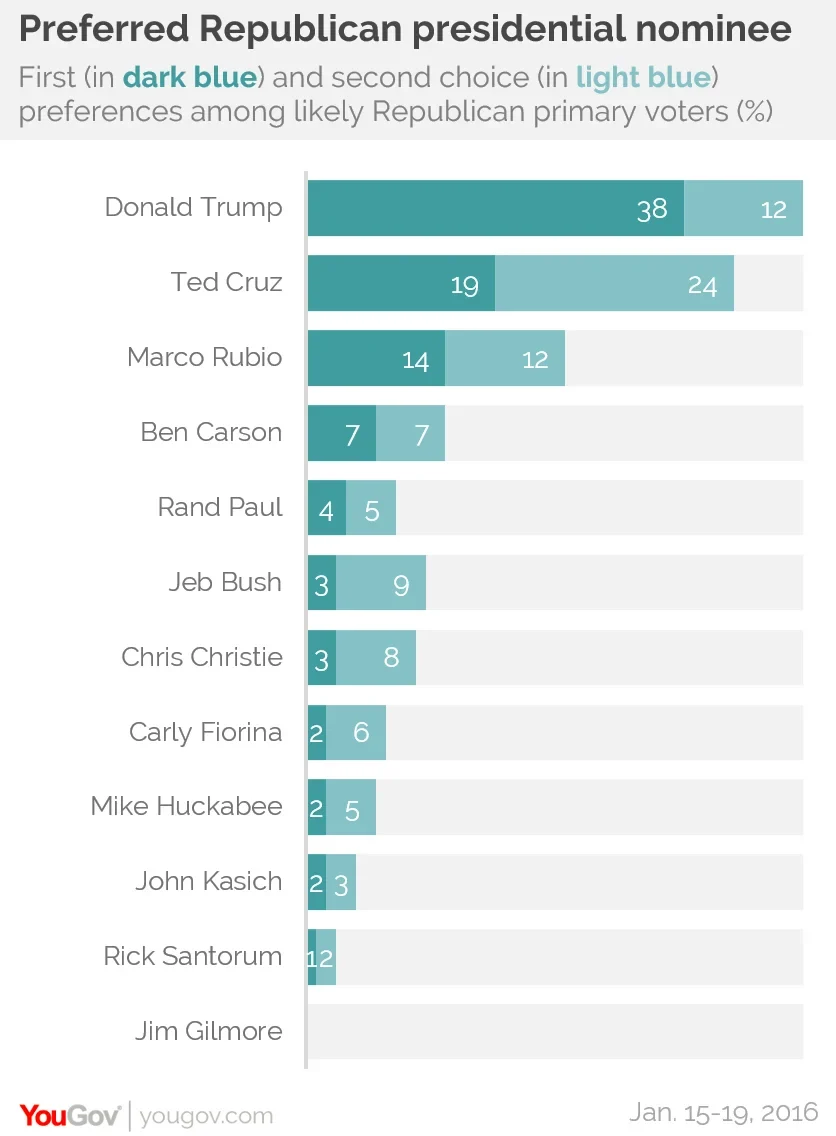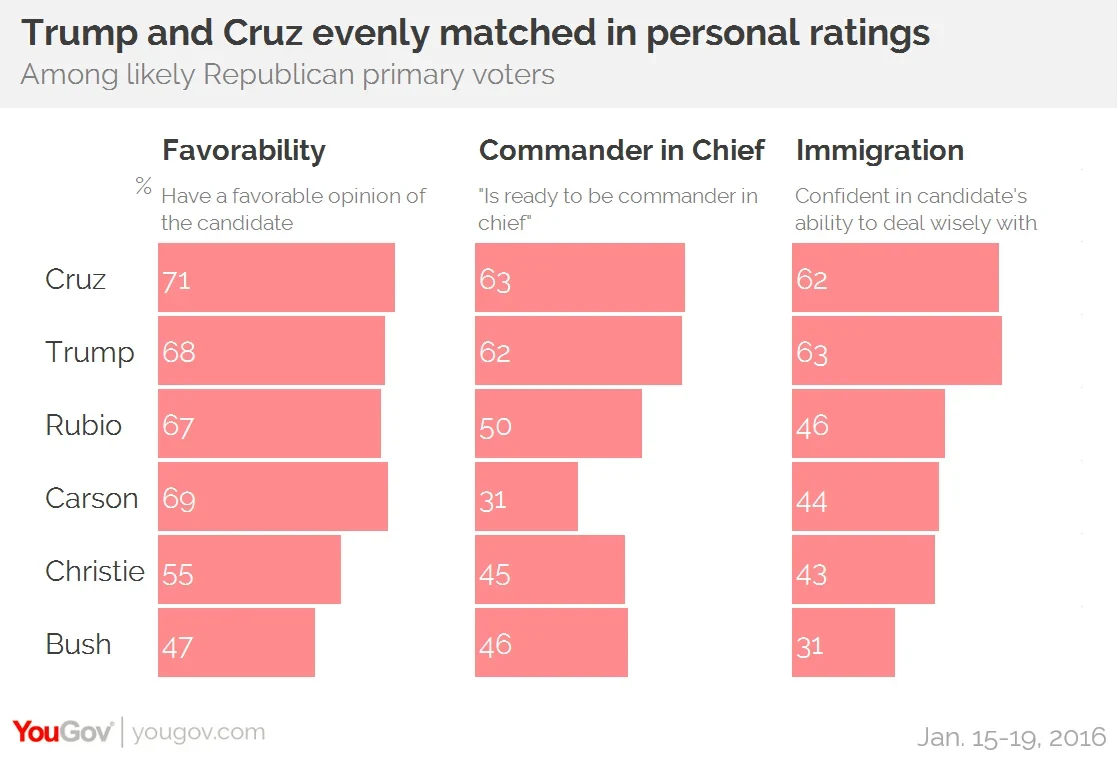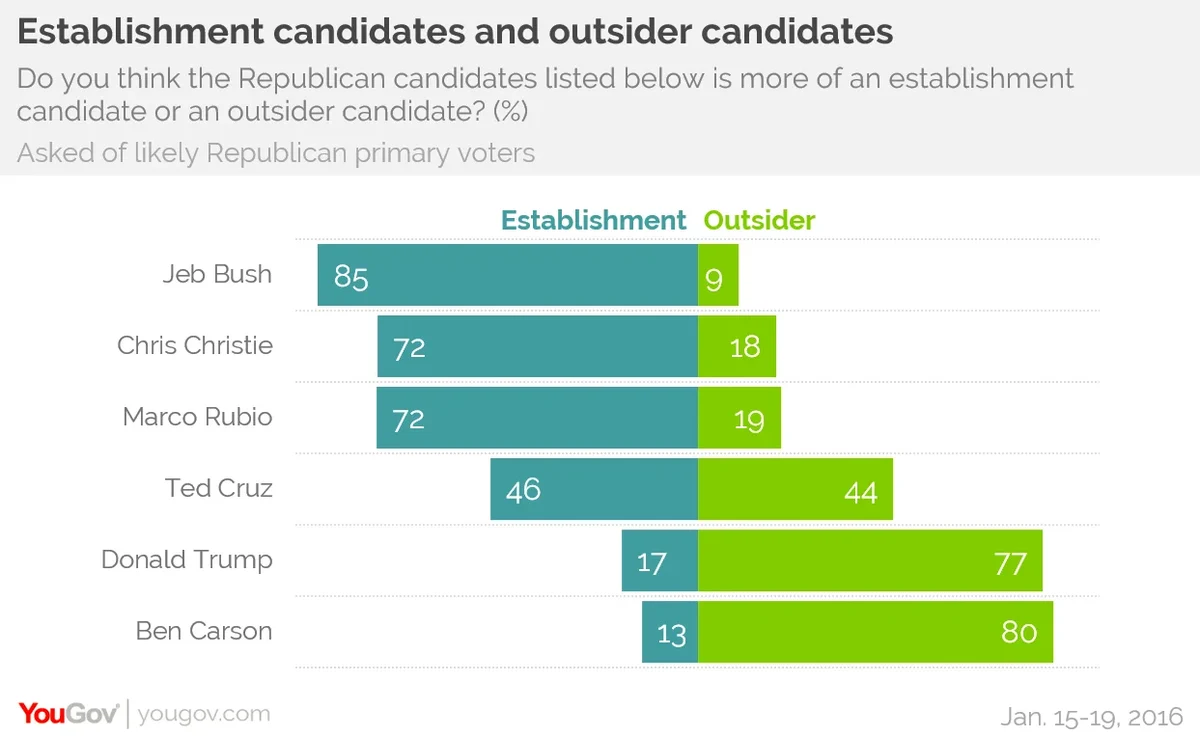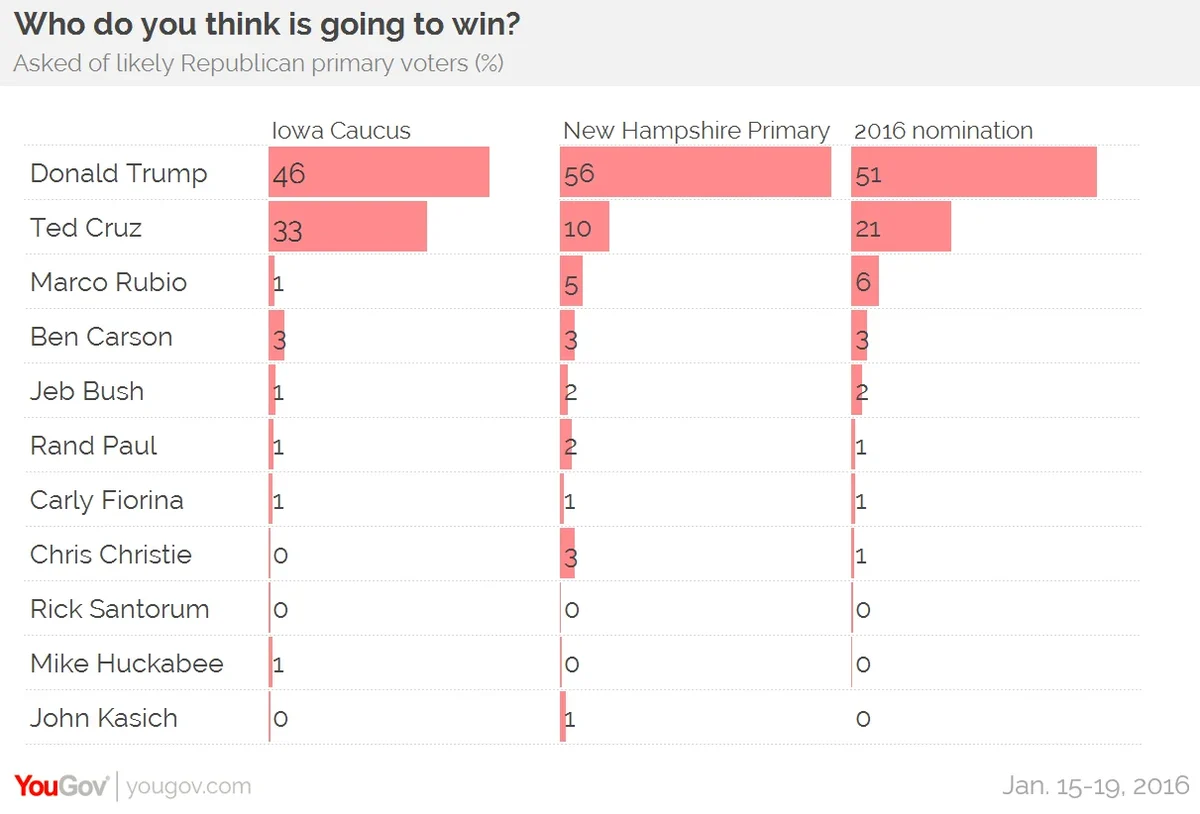Ted Cruz continues to receive positive reviews, but Trump retains a 19-point lead over the Texas senator and the rest of the G.O.P. field
Last week’s Republican debate pitted the two leading candidates against one another – but in the latest Economist/YouGov Poll suggests it might not have been an equal battle. There was one winner in the poll: Republican primary voters gave the debate victory to Donald Trump, and Trump continues to hold a two to one lead over Texas Senator Ted Cruz, his nearest rival.
But the Texas Senator narrows the Trump gap when second choice is included: a total of 43% of Republicans primary voters choose Cruz as their first or second choice, still less than the 50% who pick Trump.

The two men share supporters: more than a third of Trump’s voters say Cruz is their second choice; more than four in ten Cruz voters pick Trump for second place.
While Cruz may be gaining on Trump in Iowa, nationally there doesn’t seem to be much change. Republican voters like both men (in fact, Cruz gets slightly better ratings than Trump from Republican voters: one in three of them don’t like Trump, while just 23% have an unfavorable view of Cruz). But Trump and Cruz share similarities in perceptions. The two men score equally well with Republican voters when it comes to being seen as honest and trustworthy, as well as on foreign policy issues. No man has a clear advantage with GOP voters on handling immigration and terrorism or on readiness to serve as Commander-in-Chief.

And more than eight in ten of each of the two candidates’ supporters say they would be enthusiastic if their candidate won the nomination.
There are some differences. Cruz arguably is ideologically closer to Republican voters than Trump. On a scale of 0 to 100, with 100 the most conservative, the average Republican voter gives Cruz a score of 79, while Trump averages only 66. The average Republican voters score themselves personally at 74, less conservative than Cruz, but more conservative than Trump.
But it is Trump who captures the GOP desire for an outsider. Despite Cruz’s own claims of being an outsider in the Senate, a lot of Republican voters don’t buy it. By two to one (52% to 26%), voters say they prefer someone who is an outsider to one favored by the GOP establishment, and they are evenly divided in how to categorize Cruz. On the other hand, it’s clear to most Republican voters that the term outsider accurately describes Trump.

Former Alaska Governor Sarah Palin endorsed Trump after the survey was completed. Her position as a Tea Party favorite may make a difference in support from what is now a very important GOP group. When asked before the endorsement whom they supported for the GOP nomination, Republican primary voters who identified themselves as part of the Tea Party divided evenly between Trump and Cruz. In the next poll, we should be able to assess the impact of Palin’s endorsement.
Trump also continues to have an advantage over Cruz in electability. Expectations among Republican voters are that Trump will win in Iowa and New Hampshire, and end up with the nomination.

Of course, those expectations set the bar high for Trump, and could create problems if he does not win. It could be especially problematic since most Republican voters think both Trump and Cruz could be elected in November if they win the GOP nomination, though more think of Trump as a possible winner.
Last week’s debate did little to change opinion. Republican voters who watched saw Trump as the winner over Cruz, 41% to 24%. More improved their opinion of Trump than improved their opinion of Cruz.
While the next GOP debate won’t happen until after the Iowa caucuses, 71% of GOP primary voters say they continue to look forward to more debates.
See the Economist/YouGov results
Economist/YouGov poll archives can be found here.







